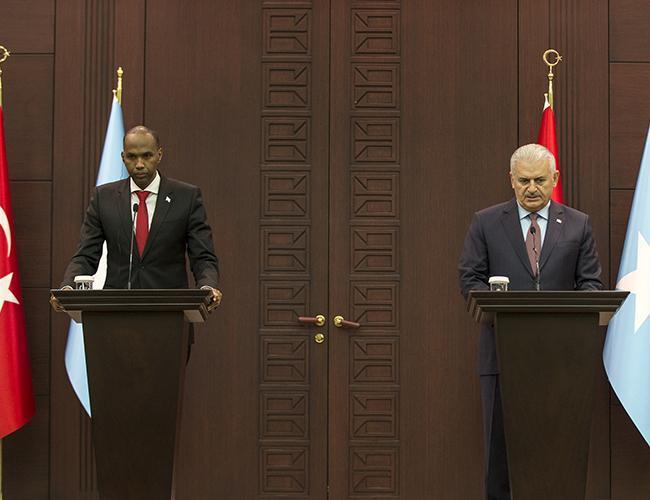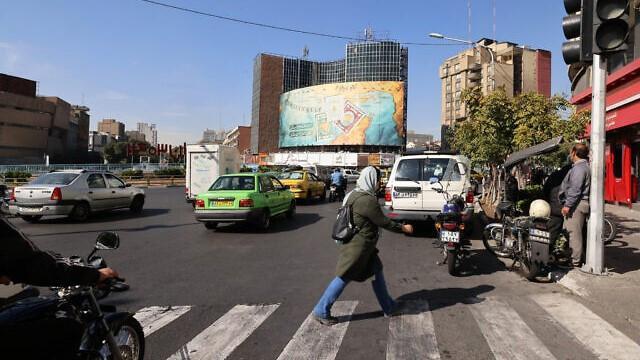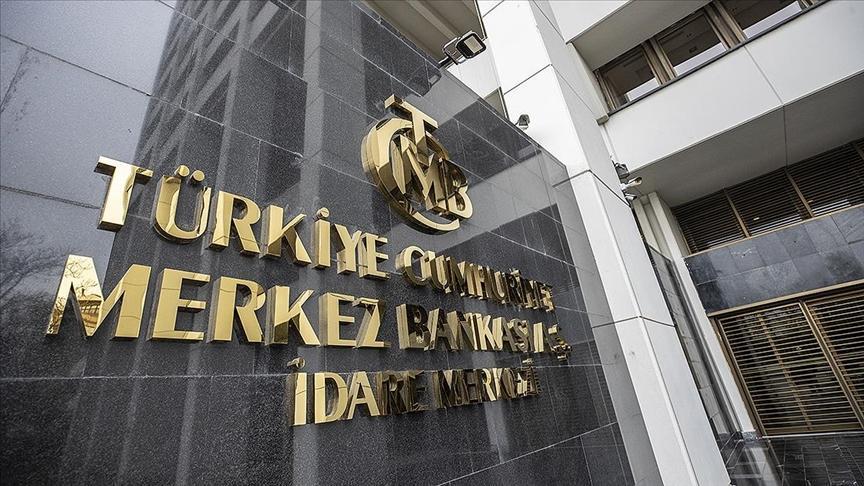Turkey, Iraq say KRG poll results must be annulled
ANKARA/TEHRAN

Both and Turkey and the Iraqi central government said on Oct. 26 that the results of an independence referendum held by Iraqi Kurdistan Regional Government (KRG) last month should be annulled.
The damage caused by the independence vote is “unrecoverable,” Turkish Prime Minister Binali Yıldırım said on Oct. 26, while earlier in the day, his Iraqi counterpart Haider al-Abadi vowed that Baghdad “will not accept anything but the cancellation of the referendum.”
Yıldırım and al-Abadi’s remarks came after the KRG proposed on Oct. 25 an immediate ceasefire, a suspension of the referendum result, and “starting an open dialogue with the federal government based on the Iraqi constitution.”
Speaking at a press conference held jointly with Somali Prime Minister Hassan Ali Khayre on Oct. 26, Yıldırım said “whatever Arbil’s decision is, it’s obvious that the damage they’ve done is irrecoverable.”
“Regardless of the decision that the northern Iraq authorities adopt, at this point it’s obvious that their decision cannot bear a result that can recover the damage they’ve done. They miscalculated [their actions],” he said, adding that Iran, Turkey and Iraq will act jointly in the following days.
“From this point onwards, as Iran, Turkey and Iraq, we will be engaged in more effective works in the fight against terror and for the peace and security of the region,” Yıldırım said.
Similarly, al-Abadi demanded on Oct. 26 that Kurds declare their independence referendum void, rejecting the KRG’s offer to suspend its independence push to resolve a crisis through talks.
“We won’t accept anything but its cancellation and the respect of the constitution,” he said in a statement during a visit to Tehran.
The Kurds have been swiftly making concessions to Baghdad since last week, when al-Abadi sent his forces to seize all Kurdish-held territory outside of three autonomous provinces.
A startlingly rapid advance by government troops transformed the balance of power in northern Iraq within a matter of days and has wrecked decades-old dreams of Kurdish independence that had come to a head on Sept. 25 with a referendum on secession.
Baghdad has always considered the Kurdish secession referendum illegal.
Al-Abadi’s visit to Iran on Oct. 26 follows a trip to Turkey on Oct. 25, a diplomatic offensive that has shored up support from Iraq’s neighbors for his hard line.
In Ankara the Iraqi prime minister met Yıldırım and President Recep Tayyip Erdoğan to discuss the vote among other regional issues.
A day later, Turkish Foreign Minister Mevlüt Çavuşoğlu deemed the KRG proposal “significant but insufficient.”
“The step back is significant but insufficient. This referendum needs to be annulled,” Çavuşoğlu said during a joint press briefing with First Deputy Prime Minister of Kosovo and Minister of Foreign Affairs Behgjet Pacolli on Oct. 26, adding that KRG leader Masoud Barzani is in a much “weaker position now” compared to where he was prior to the referendum.
During his speech, Çavuşoğlu said Barzani thought that Kurdish people would be united on his side with his referendum push but the outcome led to divisions among Kurds in Iraq. He added that Barzani “tricked” Kurds in the region and noted that the rights that the KRG leader de facto enjoyed are now gone.
Fighting between the central government and the Kurds is particularly tricky for the United States, which is a close ally of both sides, arming and training both the Kurds and the central government’s army to fight the Islamic State of Iraq and the Levant (ISIL).
Iran’s supreme leader, Ayatollah Ali Khamenei told al-Abadi in Tehran that he should not rely on the U.S. in the fight against ISIL.
“Unity was the most important factor in your gains against terrorists and their supporters,” Khamenei said, according to state TV. “Don’t trust America ... It will harm you in the future.”
Last week, al-Abadi spurned a call from U.S. Secretary of State Rex Tillerson to send “home” Iranian-backed Shiite paramilitary fighters, describing the paramilitaries as “patriots.”
Iraqi forces, meanwhile, launched an offensive on Oct. 26 to recapture the last patch of Iraqi territory still in the hands of ISIL, on the border with Syria.
“Daesh members have to choose between death and surrender,” al-Abadi said in a statement announcing the offensive on region of al-Qaim and Rawa, using an Arabic acronym for ISIL.
Also on Oct. 26, the spokesman for the U.S.-led coalition said the fighting between Iraqi government and Kurdish forces has impeded the movement of coalition military equipment in both Iraq and Syria, negatively impacting the campaign against ISIL.
Army Col. Ryan Dillon told The Associated Press that the fighting has “negatively impacted coalition efforts to defeat ISIL, specifically the inability to move military equipment and supplies to our partners both in Iraq and Syria.”
















